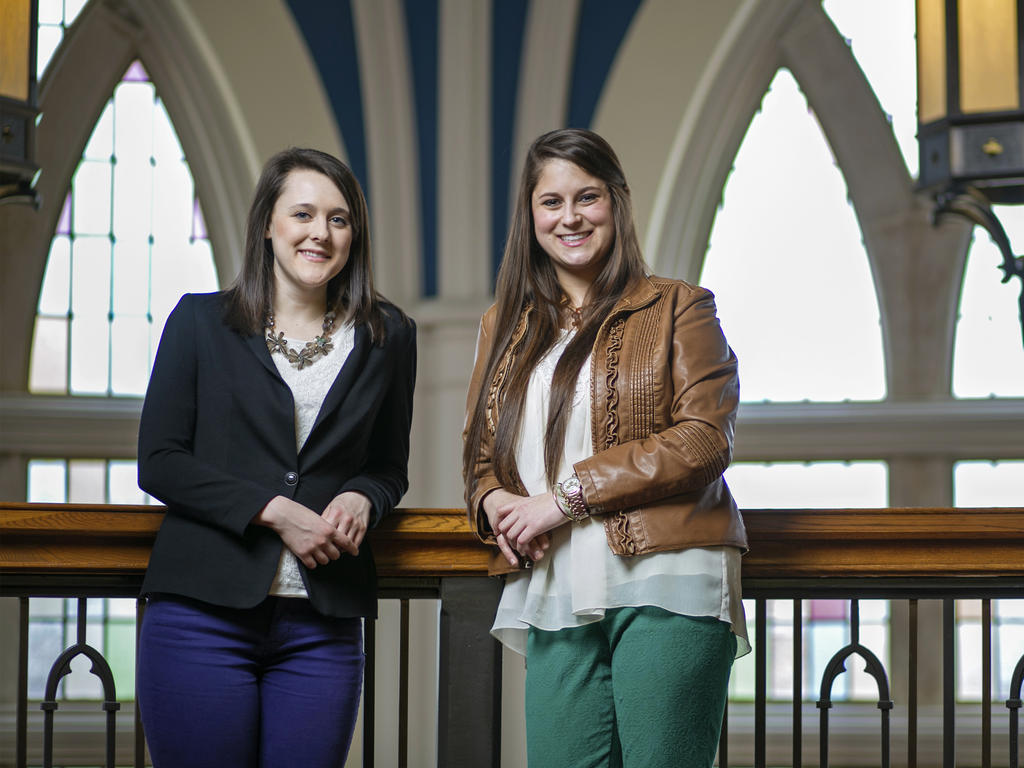Anna Stachura ′15 (left)
Hometown: Charlotte, NC
Major: Biochemistry & Molecular Biology
Brooke Bierdz ′15
Hometown: Millington, TN
Major: Psychology
While many juniors are studying for the MCAT and stressing over medical school applications, juniors Brooke Bierdz and Anna Stachura can relax. That’s because they received their medical school acceptance letters last May.
The George Washington University (GW) Medical School Early Selection Program gives students the chance to apply for admission in the spring of their sophomore year. This program is offered only to undegraduates at George Washington, Rhodes College, and nine other liberal arts schools across the nation.
Says Stachura, “For students knowing early on in their undergraduate career that medicine is the vocation for them, this program is fantastic.By having the conditional acceptance, students can explore a broader liberal arts education. Time spent preparing for the MCAT can be spent on international education, service or research. Without the GW early acceptance program, I don’t think time would have been available for these activities.”
The early application process begins second semester sophomore year, when students submit an application to the Health Professions Advising committee at Rhodes. Students interested in applying to this program must meet certain prerequisites, such as interest shown in the medical field and success in academically rigorous courses. In addition, applicants must submit a satisfactory SAT score and maintain a 3.6 minimum GPA during their first two years at in college.
Applicants are expected to have medical experience through research, internships, or shadowing, and must submit recommendations from faculty or clinical staff plus interview with faculty members on the Rhodes Health Professions Advising committee. The committee then decides which students merit an interview at George Washington Medical School. Once accepted into the program, students are guaranteed admission after matriculation from Rhodes.
While there are stipulations for the program, the early selection process helps make it possible for students to take part in other interests. “While we are encouraged to pursue medically related extracurriculars, the GW Early Selection Program opens up doors beyond that, since it opens up time that I would have spent studying for the MCAT and applying to multiple medical schools,” says Bierdz. “I have plans to volunteer abroad--which might not have been possible before this acceptance--pursue other Rhodes leadership positions, and really make the most of my time here without being too bogged down by the pressures of the medical school applications process.”
For Stachura, the next two years at Rhodes will be spent continuing the research she is conducting at St. Jude Children’s Research Hospital. In addition, though, she plans to participate in the European Studies Program, a semester-long curriculum that spends three weeks at The University of the South and six weeks at Oxford University and Lincoln College, followed by six weeks of travel throughout Western Europe.
